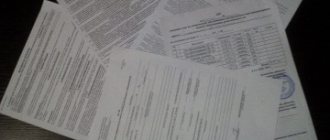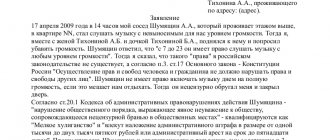“I call the management company to report problems, they listen to me, say “okay” and hang up. So what's good? Will they help me when I need to wait for the technician? I didn’t even have time to ask these questions. Tell us how dispatchers should work, what information they are required to provide to residents of houses?” This question was sent to the editors of City News from Krasnoyarsk resident Olga Koroleva. To answer it, we studied the regulatory framework and talked with dispatchers of one of the city management companies.
General standards
The operating regulations of the emergency dispatch service of the management company are described in the Rules for the implementation of activities for the management of apartment buildings. This document was approved by Decree of the Government of the Russian Federation No. 416 of May 15, 2013.
According to the Rules, the responsibilities of the emergency dispatch service include daily monitoring of all engineering systems of the house, as well as the quality of utility resources. Employees of this department of the Criminal Code must accept and register all applications from residents, as well as monitor their implementation. In addition, it is this service that controls two-way communication with elevator passengers.
Control rooms must operate around the clock, and their employees must record the information received in the appropriate logs.
ADS functions
The ADS must monitor the operation and condition of in-house engineering systems and the quality of supplied utility resources at the interface between the elements of in-house engineering systems and centralized utility networks. The ADS must register and monitor the implementation of applications from owners and users of premises in apartment buildings 24 hours a day. Owners and users of premises in apartment buildings can contact the emergency service with questions about:
- provision of public services,
- maintenance of common property,
- provision of services and performance of work on the maintenance and repair of common property,
- fulfillment of other obligations of the management company, HOA or housing cooperative.
The emergency service eliminates malfunctions and damage to in-house engineering systems, takes prompt measures to ensure the safety of citizens in the event of accidents or the threat of their occurrence.
Terms and rules
Dispatchers must respond to a resident's call within five minutes. If there are not enough resources to meet this deadline - there are situations when there are many requests - the specialist has another 10 minutes to call back. Alternatively, you can use the transmission of information using voice messages or via electronic means. But such requests must be considered by the emergency dispatch service within 10 minutes of receipt.
When registering an appeal, the dispatcher must inform the resident of the registration number of the application and information about the timing and measures for its implementation. Afterwards, they find out the causes and nature of the problem and make decisions. All this is recorded in a journal. The dispatcher has another half hour from the moment the request is registered to notify the owner or user of the premises about the deadline for completing the request.
If it turns out that damage occurred on in-house engineering systems, the dispatcher is obliged to inform local authorities about this. And if a problem needs to be fixed in an apartment, the service representative must inform the resident about the causes of the malfunction, the planned date and time of execution of the application, as well as the last name, first name, and patronymic of the employee who will perform the work. By the way, the master who comes to your home must have with him an official ID, an identification mark, for example a badge or a patch on clothing indicating the name of the organization, full name and professional specialization and... disposable shoe covers.
Emergency service
LLC “UK “VASH DOM” (Bryansk) provides emergency work on servicing residential and non-residential facilities using its emergency service.
Our specialists will help eliminate the problems of the housing and communal services infrastructure of your home at any time of the day, any day.
Working days: No days off
Opening hours: 24 hours a day
Phones:
until 01.12.2020: +7 (4832) 308-668, 370-968
from 12/01/2020: +7 (4832) 311-311
Regulations on emergency repair service (ARS)
This Regulation is the main document for sanitary and electrical work on utility networks of apartment buildings.
1. Regulations on emergency repair maintenance of utility networks of apartment buildings.
The regulations on emergency repair maintenance of utility networks of apartment buildings have been developed in accordance with current legislation.
The emergency repair service of Management Company YOUR HOME LLC carries out a range of emergency repair services for utility networks of apartment buildings and administrative buildings in order to ensure safe living conditions for the owners of premises in apartment buildings.
1.1.Accepted terms:
Accident - damage, failure of engineering equipment during operation, resulting in a limitation or termination of the supply of utilities and (or) causing damage to the property of the Customer or third parties.
Localization of the accident - taking sufficient measures to disconnect the minimum required number of individual risers, sections of communications or the entire system that is damaged from the general networks.
Elimination of an accident is the implementation of a set of measures to restore the functionality of the engineering equipment as a whole where the accident occurred.
The customer is an individual (owner of residential and non-residential premises). or a legal entity (an organization of any form of ownership with which an emergency service agreement has been concluded).
1.2. Emergency service includes:
- emergency repair and dispatch services - provision of services for accepting and registering the “Customer’s” application for an accident, localizing the accident and determining the scope of work required to eliminate the accident;
- emergency repair service - carrying out work to eliminate the accident, including restoring the functionality of the engineering equipment system and carrying out related work necessary to eliminate the accident.
1.3. The purpose of performing emergency control services for the building:
- timely localization of accidents to prevent damage that may be caused as a result of an accident, and (or) reduce the extent of damage, as well as eliminating the accident, and restoring the provision of utility services.
1.4 Separation of the boundaries of engineering equipment related to the serviced engineering networks in Appendix No. 1, which is an integral part of this provision.
1.5 Responsibilities and rights of the ARS:
The emergency repair service is obliged to:
- organize the reception and registration of applications after hours (evening and night) from 17-00 to 8-00, on weekends and holidays from 8-00 to 24-00, by phone 30-86-68 and 37-09-68.
- Draw up an order for the emergency team to leave with the obligatory indication of the following information: the results of the inspection of the accident site, the causes of the accident, the required amount of work, confirm the completion of the work by the applicant;
- Keep a log of applications. Registration is carried out in chronological order. The application registration log can be kept both electronically and on paper.
1.6. Upon receipt of the application, send an emergency team of workers to the accident site. Upon arrival at the scene, the emergency crew must:
- localize the accident;
- to eliminate the accident, the time of receipt of the application from the dispatcher and the time of localization of the accident, the latter must be certified by the person who submitted the application for the accident (except in cases where there is no such person).
1.7. The time of localization of the accident must be recorded in the application log.
1.8. The accident must be localized within the time limits established in Appendix No. 2 to these Regulations, from the moment the accident is reported.
1.9. Based on the accident localization report, ARS carries out work to eliminate faulty networks and equipment. Work to eliminate the accident is carried out in accordance with Appendix No. 3 of these Regulations.
The team that localized the accident can carry out repair and restoration work.
1.10. Carry out related work necessary to eliminate the accident.
1.11. Ensure a supply of necessary spare parts, assemblies, parts, etc.
1.12. At the written request of the Customer to provide certificates of localization or elimination of accidents, the application registration book is provided only on the basis of a court request.
1.13. Disconnect individual risers, sections of communications or the entire system from general networks according to the requirements of the units of the Ministry of Emergency Situations of Russia, in order to prevent accidents in emergency situations with mandatory notification to the Customer.
1.14. ARS has the right to disconnect from water supply systems, heat and electricity supply to individual buildings, sections of buildings, risers for repair work.
1.15. ARS has the right to demand from the Customer free access for the emergency crew to the work sites (basement, water metering unit, electrical room, heating point, etc.). In the event of lack of access, the ARS is obliged to draw up a report on the impossibility of fulfilling obligations indicating the reasons for the lack of access, which must be certified by the person who filed the accident report or two witnesses.
1.16. ARS is obliged to carry out work to eliminate accidents only within the limits of responsibility specified in Appendix No. 1 of these Regulations.
2. Responsibilities and rights of the Customer.
2.1 The customer is obliged to assist the emergency response system when interacting with energy supply, heat supply and water supply organizations to eliminate the accident.
2.2 The Customer has the right to control the progress of work to localize and eliminate accidents in the manner established by these Regulations.
The following annexes are an integral part of these Regulations:
- Appendix No. 1 Separation of boundaries of responsibility;
- Appendix No. 2 Deadlines for eliminating accidents;
- Appendix No. 3 List of emergency maintenance work.
Appendix No. 1
to the Regulations on emergency repair and
dispatch service.
Separation of boundaries of responsibility.
Boundaries of service for MKD utility networks subject to emergency dispatch service.
The Contractor provides services under this provision within the following boundaries of the utility networks of an apartment building:
- intra-house heating networks - from the first flange of the supply valve of the heating unit, to the control valve in front of the heating device in apartments, in the absence of a control valve to the heating device;
- intra-house cold water supply networks - from the outer wall of the building to the control valve in the apartments, inclusive;
- intra-house hot water supply networks - from the control unit, or from the first flange of the supply valve, to the control valve in apartments inclusive;
- intra-house sewerage networks - vertical pipelines, exhaust parts and cleaning devices, main pipelines in the basement, including sewerage outlets from a residential building to the 1st well on the intra-house network;
- power supply networks - from the contact connections of the 0.4 kV cable of the ASU MKD, to the input terminals on the individual metering device, located in the place established by the house passport (floor electrical panel or in the apartment cable channel).
Appendix No. 2
to the Regulations on emergency repair
service.
Time frame for eliminating accidents
- The emergency repair service is obliged to carry out emergency repair and restoration work specified in Appendix No. 1 to this regulation with mandatory adherence to the deadlines specified in clause 2. of this Appendix No. 2.
- Time frame for work on MKD engineering systems:
| No. | Name of the system on which the emergency occurred | Maximum time to localize an accident (hour) | Maximum time to eliminate an accident (carrying out emergency recovery work (hour) | note |
| 1 | Cold water system | 1 hour | No more than 2 hours | |
| 2 | Hot water system | 1 hour | No more than 2 hours | |
| 3 | Drainage system (sewerage) | 2 hours | No more than 2 hours | |
| 4 | Central heating system | 1 hour | No more than 2 hours | |
| 5 | Electricity supply | 1 hour | No more than 3 hours |
The time frame for eliminating the accident may be adjusted in the following cases:
- lack of access to work sites;
- the need to attract energy supply organizations.
Appendix No. 3
to the Regulations on emergency repair
service.
List of emergency maintenance work
1. Cold, hot water supply and sewerage:
- repair of faulty sections of utility networks (hot water supply, hot water supply);
- closing and opening shut-off valves during emergency work;
- installation of bandages on the pipeline;
- eliminating sewerage blockages inside the building;
- eliminating clogged sewer pipes (beds) up to the first well;
- temporary sealing of fistulas and cracks in internal pipelines and risers (installation of a clamp);
- localization of leaks of sanitary fixtures in technical areas. undergrounds, basements, elevator rooms, boiler rooms.
2. Central heating:
- repair of faulty sections of utility networks (CN)
- closing and opening shut-off valves during emergency work;
- installation of bandages on the pipeline;
- Elimination of leaks by sealing pipe joints, fittings and fittings.
- elimination of air jams in risers and radiators if they have air vents.
- turning off radiators if they leak;
- compaction of squeegees;
- adjustment and packing of oil seals;
3. Power supply:
- repair of faulty sections of electrical wires, electrical cables (up to 1 m), insulation of damaged areas.
- replacement of fuses, circuit breakers in input distribution devices and electrical panels,
- replacement of fuse links in electrical panels;
- securing switches, electrical lines
- turning on and off switching devices during emergency repair work.
4. Related work required to eliminate the accident:
- disconnecting risers in certain sections of pipelines, emptying disconnected sections of central heating and hot water supply systems and refilling them with the start-up of the system.
Attachments:
| Regulations on ARS LLC UK YOUR DOM.doc | 74 KB |
Outfit for a janitor
To see how the norms of the federal Rules are implemented in practice, we visited two dispatch services of the municipal management company “Krasnoyarsk”. In most large management companies, emergency crews and dispatchers work separately. Management companies must indicate their contacts in receipts and on the official websites of the organizations.
Applications can be submitted to MUK “Krasnoyarsk” either by telephone or during a personal visit to the office. For the convenience of residents, the company uses a multi-channel telephone with an interactive voice menu.
We arrived at the control room of the sanitary maintenance and improvement section of the apartment building at the most tense moment - during a snowfall. According to the head of the site, Anastasia Dolgova, applications are collected here for the work of janitors, as well as cleaners who wash entrances and stairs, and disinfect common areas. Two dispatchers work with citizens' requests. They accept applications not only on a landline phone or during a personal visit of residents, but also on instant messengers: Viber and WhatsApp.
While we were talking with Anastasia Dolgova, the janitors and cleaners received their outfits and went to perform their official duties. They work every weekday, and on special occasions they open on weekends. Prolonged heavy snowfall is just such a case.
“In the morning, janitors clean exits from entrances and blind areas,” says Anastasia Dolgova. — Then there’s the courtyard driveway, sidewalks, playgrounds. The bedding is used in case of ice. Sometimes residents are against the use of sand, we try to meet them halfway, we use a salt mixture, and in some places we clean it down to asphalt or make notches.
Legal acts in the field of repairs for housing and communal services
To ensure sanitary and technical regulations, the legislation of the Russian Federation has adopted standards for eliminating accidents in housing and communal services.
On September 27, 2003, the decree of the State Construction Committee of Russia on the Rules and Standards for the Operation of the Housing Stock, which regulates the time for carrying out preventive work, came into force.
It is advisable to carry out maintenance of heating networks at a time and in the summer. The desired duration of work should not exceed 14 days . Small deviations established by self-government bodies are possible here.
On 04/07/2009, the Resolution of the Federal Service for Supervision of Citizens' Welfare and Consumer Rights Protection was adopted. It establishes hygienic safety standards for hot water supply systems. Particular attention is paid to municipal facilities, such as hospitals, schools, boarding schools, and preschool institutions.
Please note: during the repair of water supply systems, the above facilities must be provided with hot water from their own sources. This point should be taken into account at the design stage of the facility.
“Technical section, Butorova”
The management company has an extensive scope of work; it services almost 250 houses in all areas of the city. The staff is more than a hundred people. The structure of the enterprise includes four repair and operational sections: one on the right bank, three on the left. Each has its own dispatchers.
“Hello, technical section, Butorova,” the operator of the control room at Vysotnaya, 1a introduces himself. Although most often she does not need an introduction, residents recognize her by her voice.
The day we arrived at the technical site was relatively warm, which is probably why there were few calls. In cold weather the number of requests is much higher.
“In cold weather, resource supply organizations usually increase the heat supply,” says Tatyana Spitsyna, senior operator of the dispatch service. - Some people get hot, but others still feel cold. We accept applications by phone or during a personal visit; all requests are entered into a special program. Locksmiths try to handle calls as quickly as possible.
For all problems with heating, the Criminal Code draws up reports. Then, based on them, specialists decide how to resolve the situation.
Water supply breakdowns
Elimination of problems with cold and hot water supply must be carried out in accordance with the requirements of the instructions.
Time limits for turning off hot and cold water:
- the total duration of lack of water is no more than 8 hours per month;
- in case of a single breakdown – no more than 4 hours;
- If an emergency occurs on a dead-end highway, it may take up to 24 hours to resolve it.
It is worth noting that turning off the cold water supply without warning can only happen if there is a threat of an accident or natural disaster. The case when the subscriber does not pay for water supply for more than 6 months is not considered here.
Breakdown of the drainage system
External (icing, contamination, destruction of drainpipes) and internal (leaks, blockages) problems must be eliminated immediately after detection in order to prevent further destruction of the system.
Permissible duration of lack of drainage:
- no more than 8 hours in total;
- 4 hours for a one-time breakdown.
Equipment that has been repaired is considered handed over after a certain time has passed. Thus, the drainage system after current repairs is considered completed after 8 hours have passed, and after a major repair - 72 hours.








